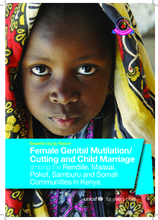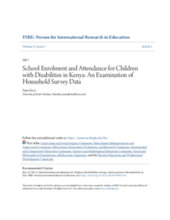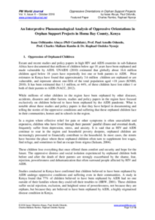This country page features an interactive, icon-based data dashboard providing a national-level overview of the status of children’s care and care reform efforts (a “Country Care Snapshot”), along with a list of resources and organizations in the country.
demographic_data
childrens_living_arrangement
children_living_without_bio
adoption
social_work_force
key_stakeholders
Key Stakeholders
Add New DataOther Relevant Reforms
Add New Datadrivers_of_institutionalisation
Drivers of Institutionaliziation
Add New Datakey_research_and_information
Key Data Sources
Add New DataChildren's Act, 2022 (Kenya)
Prevalence and number of children living in institutional care: global, regional, and country estimates
Social Protection and Disability in Kenya
Kenya Social Protection Sector Review
Country Care Review: Kenya
Child Developmental Disabilities, Caregivers’ Role in Kenya and Its Implications on Global Migration
Research findings on Alternative care system in Kenya for children without parental care
Charitable Children Institutions in Kenya: Factors Influencing Institutionalization of Children
Acknowledgements
Data for this country care snapshot was contributed by consultants with Maestral International.
Displaying 341 - 350 of 447
The main objectives of this study were to establish the prevalence of female genital mutilation/cutting (FGM/C) and child marriage among five ethnic communities in the following six study locations: Garissa (Balambala); Wajir South (Habaswein); Kajiado Central; Marsabit (Laisamis); Samburu (Wamba); and West Pokot (Sook).
Using two sources of household survey data, this paper examines school enrolment and attendance patterns for children with disabilities in Kenya.
This video is presented by Better Care Network and UNICEF. It features interviews with experts, including members of the Kenya Care Leavers Association explaining some of the negative impacts of institutionalization and highlighting their efforts to support young people who are transitioning out of care.
This article from Kenya discusses how different gender expectations leave boys at a higher risk for living on the streets.
The objective of the study was to estimate the prevalence, comorbidity and socio-demographic correlates of common mental disorders among orphan and vulnerable children (OVCs) in residential care.
Kenya launches its first police unit dedicated to the fight against child sexual exploitation and abuse.
The Guardian reveals how police in Eldoret, Kenya chased children out of "California Barracks" into the Sosiani River.
This paper is a literature review on the conditions of HIV/AIDS orphans in Kenya.
Stigma shapes all aspects of HIV prevention and treatment, yet there are limited data on how HIV-infected youth and their families are affected by stigma in sub-Saharan Africa.
This article examines how urban Congolese refugees in Kenya promote psychosocial well-being in the context of structural vulnerability.



